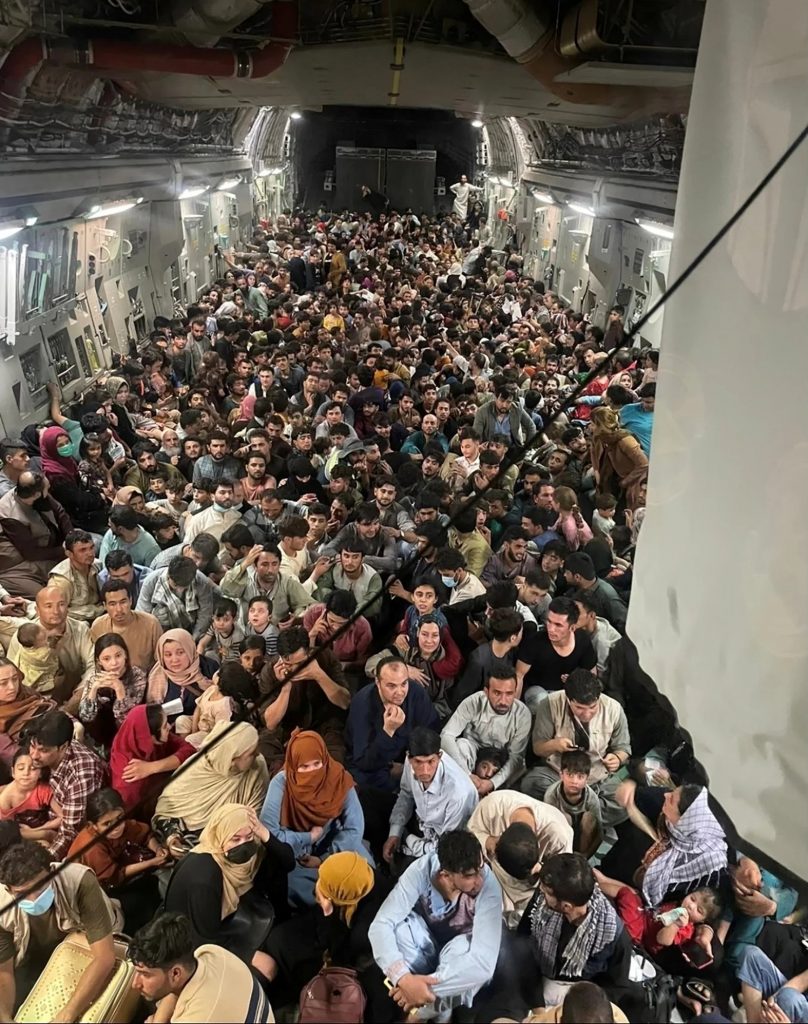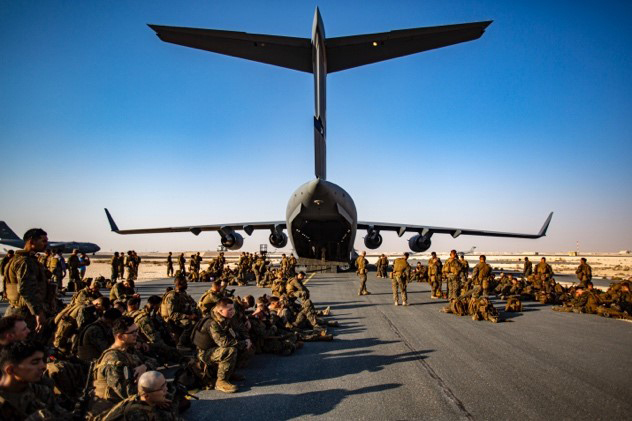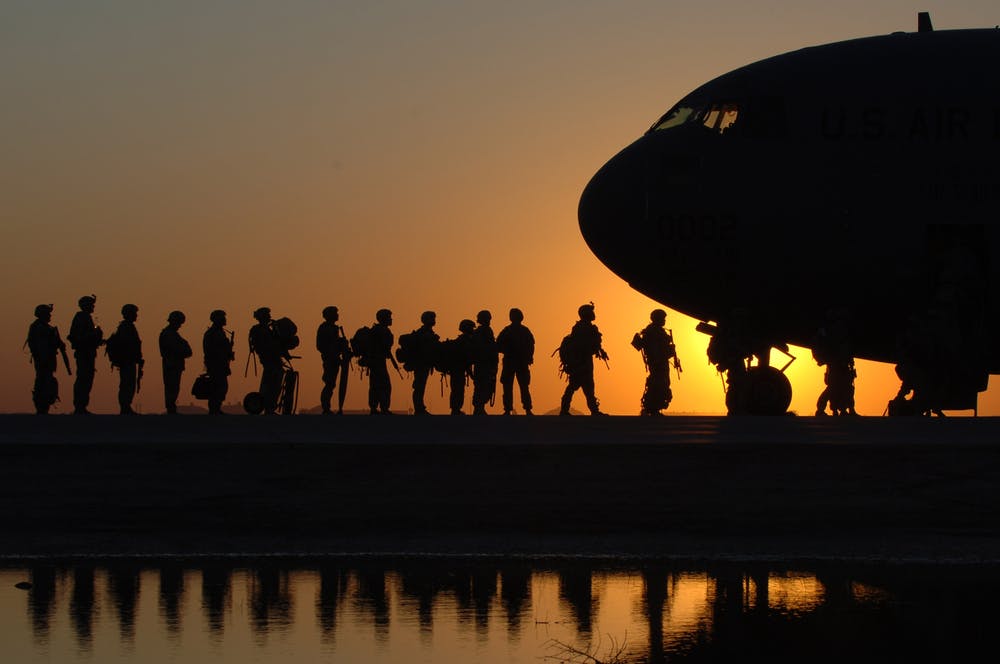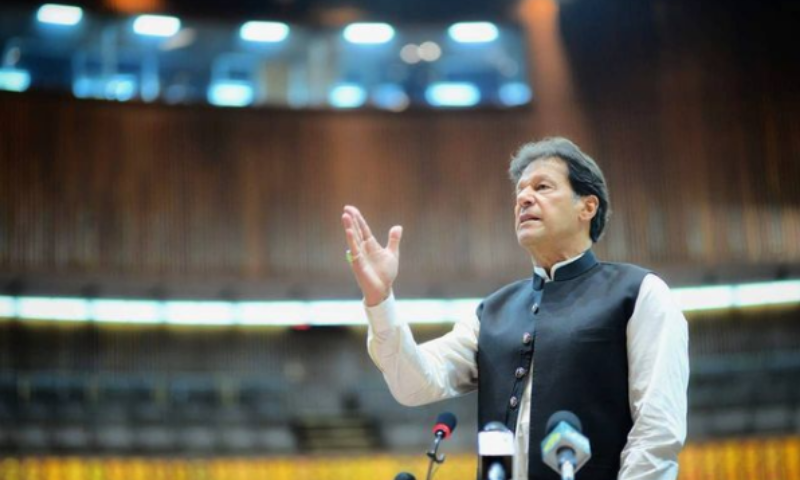Authors: Esther Brito Ruiz, Arslan Sheikh and Ludovica Brambilla

The last two years have been the site of unexpected human security crises - ranging from a global pandemic to the collapse of states. South Asia particularly has been subjected to important crises that have echoed across the region and had global consequences. Maybe the two most significant of these crises have been the Taliban takeover of Afghanistan and the enduring crises in Kashmir. Both these situations have seen human security determine the broader trajectory of national security, and can serve as examples of why to promote any kind of stability, the wellbeing of the people must come first.
Afghanistan: the consequences of setting human security aside
The Afghanistan crisis clearly represents the consequence of failing to centralize and protect human security. In the wake of the United States’ invasion of Afghanistan, which was originally deployed under the justification of anti-terrorist efforts – seeking the capture of Bin Laden and the countering of Al Qaeda – little good has remained after the end to two decades of occupation and trillions of dollars of investment. With the Taliban back in power and a looming humanitarian catastrophe – in the words of UN Secretary-General António Guterres – this crisis is one of the most severe threats to human security today.
But the real impact we can expect on the lives of Afghans remains multifaceted. Firstly, we have seen the weeks since the US withdrawal marked by a resurgence of terrorism in the state - as evidenced by the Daesh-K August 26 attack on the Kabul airport. Secondly, as a result of the war and widespread violence, the country now has over four million Internally Displaced People (IDPs), contending not only with overcrowded camps and a lack of access to basic services - like clean water - but also with the increase of COVID-19 cases. Afghans are facing a possible famine, collapsing health services, and a paralyzed economy in the wake of the seizing of most of the country’s reserves. In fact, the country’s Central Bank has been expelled from the international banking system and refused access to both the states’ foreign reserves and any international credit and assets assistance – including that which it had been previously granted to combat the rise of COVID. As a result of this economic paralysis, prices of food and essential goods have experienced an exponential rise and most financial services and banks have been left unable to operate or provide money to residents. This compromises the survival of local populations – especially those already most vulnerable. As this situation worsens, over 40% of the Afghan population faces acute food insecurity. Beyond these circumstances, the behaviour itself from Taliban authorities is a core threat to the rights and security of its citizens – especially for women and minorities. Massacres of ethnic and religious minorities – specifically of Hazara men in recent weeks – and retribution killings to collaborators of the US army set a worrying precedent to what opposition groups will experience in coming months, as the Taliban secure their rule and repress revolts. Indeed, Deborah Lyons, the Special Representative and Head of the United Nations Assistance Mission in Afghanistan (UNAMA), has affirmed that “the lives of millions of Afghans will depend on how the Taliban choose to govern”. With little response from recent UN Human Rights Council sessions and assistance on the ground from United Nations agencies and aid organizations being scaled back due to security concerns, prospects are not positive.

The severe human crisis in Afghanistan we see today is a consequence of an erroneous and militaristic view of what national security and peace requires. Peace begins with the security not of broad governments or the promotion of abstract values, but with the security of the people – established and maintained through access to the basic tenants of a dignified life; including education, food, healthcare, and jobs. By choosing not to center human security, the US acted more as an empire than as an ally for the Afghan people - and in their retreat, little care has been given to the wellbeing of locals and the crises left behind for them to endure. We can wonder what the situation would be today if the focus of the international community’s involvement in this state was for its communities to thrive – rather than the imposition of strategic goals for external parties. In the words of Ibrahim Al Marashi, “America’s failure to address human security ended up harming its national security”.
With the world facing one of the worst humanitarian crises of the last decades, Afghanistan’s people have been left to contend with the human crisis of a pandemic and a state collapse simultaneously. While proposals to extend the UN mission in Afghanistan (UNAMA) have been put forth, the likelihood of this engagement in the long term is minimal. Afghanistan now faces a human security crisis in almost every of its expressions - combining a political and economic crisis, a compromised food and healthcare system, and personal and communal threats to life. The way this crisis develops over the next few months will profoundly impact not only Afghans and their future, but the trajectory of all of South Asia.
Kashmir: the forgotten crisis of water security
Water Security is sometimes considered the most important component of human security - since the very basic survival of life is dependent on it. Additionally, water insecurity effectively compromises all other expressions of human security; thus putting the very continued existence of human communities at grave risk. Despite this, it has often become sidelined in conversations regarding international security and humanitarian crises. Specifically, the water-security nexus over transboundary river basins among riparian countries is a growing concern, which will need to be dealt with increased urgency in the wake of the escalating consequences of climate change.
Among such various transboundary river basins, the Indus River Basin (IRB) in South Asia represents a peculiar case. The IRB flows through the erstwhile princely State of Jammu and Kashmir, which is now divided through a Line-of-Control - a de facto border between India and Pakistan. While this area has a relatively successful water management framework - in the form of Indus Water Treaty - there is no institutional and legal framework which addresses the effects of climate change on water availability in the IRB. This is a delicate situation, as the IRB has become the second ‘most overstressed aquifer’ in the world because of the area’s growing population and the development pressures of both shoreline countries.
The issue of water security in the region is a potential future source of state conflict and a prime human security issue. The territorial conflict over the erstwhile princely state of Jammu and Kashmir has led India and Pakistan into three conventional wars in 1947, 1965 and 1999 respectively. Both these countries have built major dam infrastructures on the IRB for irrigation and hydroelectricity. In India, it is one of the two main river systems supporting the country’s water deficient areas of the north-west. In fact, according to NITI Aayog, a public policy think-tank of the Government of India, “India is suffering from the worst water crisis in its history, with around six-hundred million people facing high to extreme water stress and about two-hundred thousand people dying every year due to inadequate access to safe water’’. However, even this report mentions no data on water management and composition of the Union Territory of Jammu & Kashmir - still a delicately trodden political issue. In turn, Pakistan is exclusively dependent on IRB for irrigation and hydropower. Thus, this basin represents a vital source for their national food, water, and energy security. This dependency is worsened by the severe water shortages and declining water per capita availability that Pakistan has been facing in recent years. As such, hydro-politics over the IRB have put the growing population of both countries at an extreme risk - both in terms of human security and with regards to broader state conflict. With the perennial tensions between India and Pakistan, and the frequent indication of IRB being used as a geopolitical weapon, the water security of South Asia’s most populated region remains an imminent threat.
Conclusion
Both the cases presented evidence a simple truth - security, at any level, lays its foundations on the wellbeing of the people. In the absence of this, there can be no sense of stability or continuity. Afghanistan and Kashmir serve to remind us that even with vested national security interests, state and military involvement, and capital investment, those endeavours that forgo human security will eventually face violence, conflict, and possible internal collapse.

